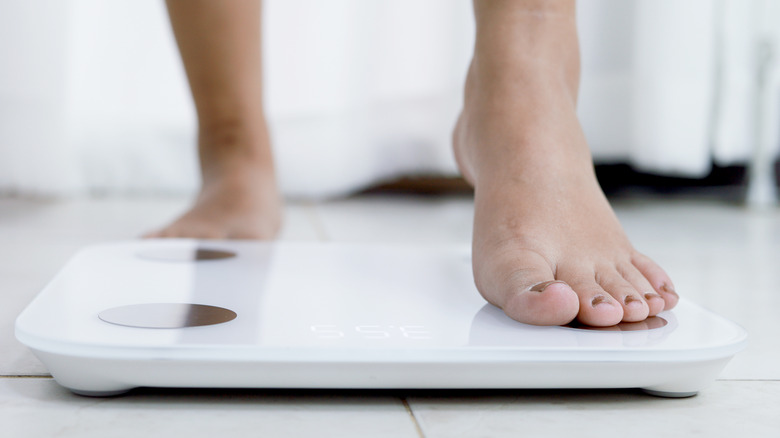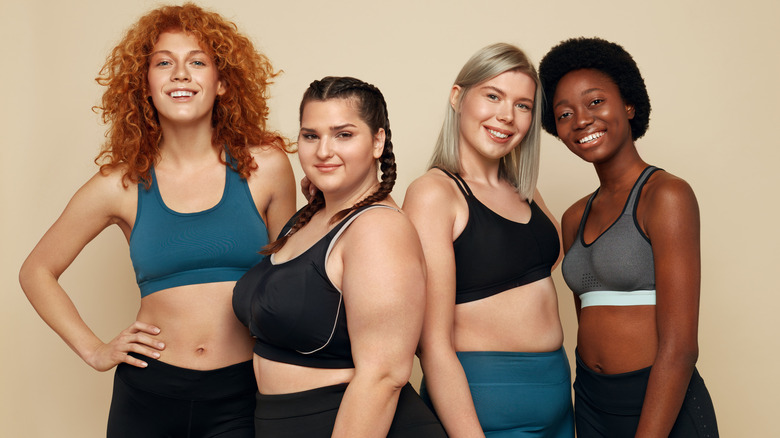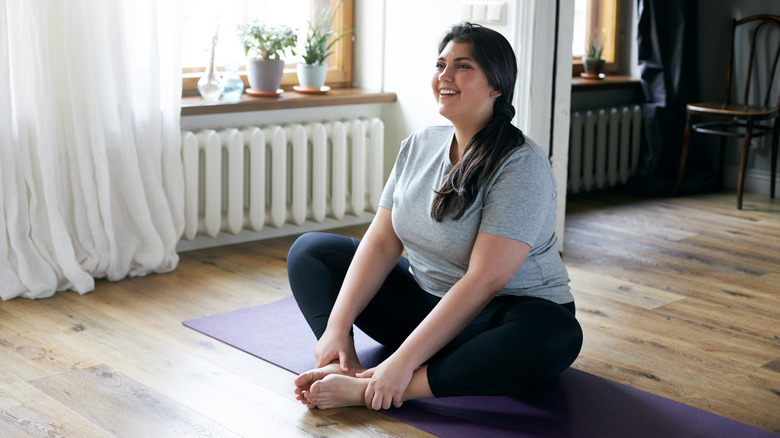What Is The Average Weight For A Woman In The US?
They say comparison is the thief of joy, and that can certainly be the case when it comes to bodies. Body shape and size can be a touchy subject, and learning how much someone else weighs can motivate some to try to mimic their body type, even when it may be unhealthy to do so. That's why critics recently slammed Kim Kardashian for talking about crash dieting to fit into her Marilyn Monroe Met Gala dress, with some calling the move "dangerous" for Kardashian's fans who may try a similar weight loss strategy.
Whether it's Monroe, Kardashian, or "regular" women, everyone has their own body type. Still, it can sometimes help to know what the average weight is when setting health goals or determining your lifestyle needs. For example, the FDA says that body weight should be considered when deciding how much of a medicine to take. Knowing average weight statistics can also help you choose a goal weight that is practical, rather than inspired by the ultra-thin frames of influencers and Hollywood stars.
The average weight for a woman in the U.S. is 171 pounds
Standing at around 5'4", the average woman in the U.S. weighs 170.6 pounds, according to a 2020 post at Healthline. This average varies by age group: women aged 20 to 39 weigh an average of 167.6 pounds, women 40 to 59 weigh an average of 176.4 pounds, and the average weight of women 60 and older is 166.5 pounds.
Americans' body weight has steadily increased over the last several decades. According to a 2015 article by The Washington Post, the average woman in the U.S. weighed 140 pounds in 1960. Women now weigh around what the average 1960s man weighed. (Men have also gained weight over time, with the average man in the U.S. now weighing in at around 198 pounds.) However, body ideals have shifted, too. As CNN reports, the 1900s began with body-shaping corsets before ushering in the era of the slim flapper girl. Curvy pinup models reigned in the 1940s, but by the 1960s and '70s, the pressure to be skinny spiked again. Though there's still room for improvement, the media started pushing for fuller athletic body types in the 1980s and '90s before displaying greater diversity in recent years.
Is weight an accurate way to measure health?
The body positivity movement has gained traction in recent years, celebrating a variety of shapes and sizes. Meanwhile, some have argued that the normalization of larger bodies promotes obesity (via Forbes). According to Healthline, older women are more at risk for developing obesity than older men, with over 40% of American women considered to be obese.
Obesity is determined by body mass index (BMI), which compares height and weight. But stepping on a scale might not be the best way to determine how healthy you are. Prevention notes that weight measurements don't take muscle mass into account (nor does BMI), nor do they say anything about a woman's lifestyle behaviors. For example, an overweight woman who follows a healthy meal plan and has the energy to exercise regularly may be healthier than an underweight woman who doesn't follow similar health behaviors. Research posted at the Wiley Online Library has also shown only minimal improvements to health outcomes when people diet to lose weight.
While knowing average weight statistics can help in some cases, these numbers shouldn't be the only information considered when trying to get healthy. The number on a scale says little about overall health and well-being.


